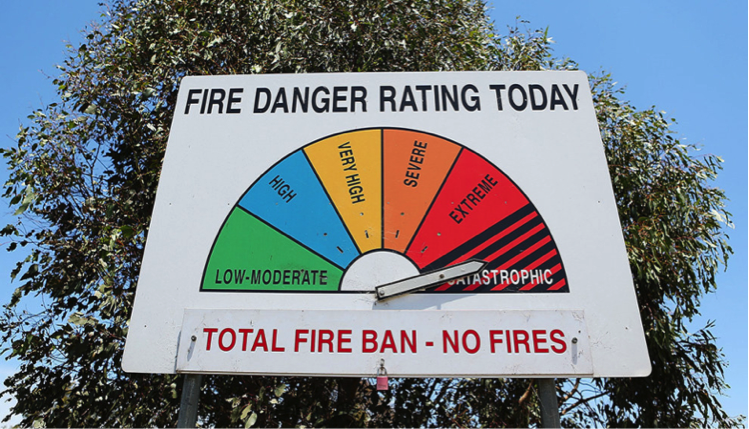
The catastrophic fires recently impacting Australia have given rise to longer-term issues for employers who are not able to quickly reopen their doors.
We will be running a series of articles to address these issues and start below with the rights and obligations of voluntary emergency services.
We trust these articles will help you address some to the questions you may have.
Q: Is an employee entitled to leave to fight fires?
Employees are entitled to take community service leave for voluntary emergency management activities. An employee is only eligible for voluntary emergency management activity if:
- They engage in an activity that involves dealing with an emergency or natural disaster, such as the recent bushfires.
- They engage in the activity on a voluntary basis (regardless of whether they will be taking gratuity, honorarium, or similar payment for engaging in the activity).
- The employee is a member of, or has a member-like association with, a recognised emergency management body including fire-fighting, civil defence or rescue body or a body that has a role or function prepared by the Commonwealth or State/Territory under a plan to cope with emergencies or natural disasters.
- The employee was requested by or on behalf of the body to engage in the activity, or it would be reasonable to expect that such a request would have been made if circumstances had permitted.
Employees are to give notice of their activities to their employer as soon as is reasonably practicable and must provide details of the period or expected period of their absence.
Employers may request evidence from the employee to demonstrates that they had been engaged in voluntary emergency management activity.
Provided the evidence supplied by the employee satisfies the employer, there is no time limit for the employee’s absence to undertake such activities.
There is no statutory obligation on the employer to pay the employee for their community service activities. Remember you must comply with any relevant provisions in an enterprise agreement, contract or policy regarding community service leave.
Note: Employers risk potential claims if they take adverse action against the employee (such as terminating their employment) for undertaking recognised voluntary emergency management activities.
Q What if my business is temporarily or permanently closed because of the bushfires?
Businesses impacted by natural disasters such as the recent bushfires, need to consider employee entitlements during a period of closure. Consideration should be given to the following:
- Offering employees access to their accrued leave entitlements;
- Standing down employees; or
- Redundancies.
Q Can I direct employees to take accrued annual leave?
Employers can direct employees to take paid annual leave if it is reasonable to do so. Remember to comply with any notice obligations under an applicable Award or Enterprise Agreement. Where a business is not able to operate due to bushfires it is likely a direction to take paid leave during the closure period would be seen as reasonable.
Where an employee does not have enough accruals of annual leave, employers may offer to pay annual leave in advance or agree that the employee can take unpaid leave.
Standing Down Employees
Section 524(1)(c) of the Fair Work Act 2009 (FW Act) provides that employers may ‘stand down an employee during a period in which the employee cannot usefully be employed…’ An example of where an employee cannot usefully be employed is where a business cannot open due to a natural disaster.
Remember, if an applicable industrial instrument or a contract of employment includes a term for stand down, the employer must comply with that obligation.
Q Do I have to continue to pay my employees’ wages during a stand down period?
No – (subject to any obligation in an industrial instrument or contract of employment) employees are not required by the FW Act to pay wages during the stand down period.
It is important to note that during the stand down period, although employees are not being paid, their period of employment is not broken.
Q Can I stand down an employee that is already on approved leave?
Section 525 of the FW Act prohibits employers from standing down an employee on authorised paid or unpaid leave.
Redundancy
If a business is not going to reopen, the employer will need to consider redundancy. We will run a series of redundancy articles in the coming months but thought we would give a quick overview of what a redundancy is:
Q What is a Redundancy?
If your business is severely affected by a natural disaster and you will not be reopening, or your business won’t be able to operate for a considerable period of time, you may need to consider dismissing employees on the grounds that the employee’s job is no longer required to be performed by anyone in the foreseeable future.
Section 389 of the Fair Work Act provides that a dismissal is considered to be a ‘genuine redundancy’ when:
- The employer no longer requires the employee’s job to be performed by anyone because of changes in the operational requirements of the employer’s enterprise; and
- The employer has complied with any obligation imposed by an applicable modern award or enterprise agreement to consult the redundancy.
The dismissal will not be considered a genuine redundancy if it would have been reasonable to redeploy employees within the employer’s enterprise or the enterprise of an associated entity of the employer.
The FW Act does not define ‘operational requirements’ however, one example is a site or business closure.
When considering redundancies, it is essential to comply with all obligations outlined in the FW Act, any award or industrial instrument and the contract of employment.
Conclusion
We will publish a series of articles addressing employment law questions and issues arising from the terrible fire events.
Please feel free to contact us if there are any questions you specifically want addressed.
Nicole Dunn Mary Saliba
Legal Practitioner Director Legal Practitioner
January 2020
